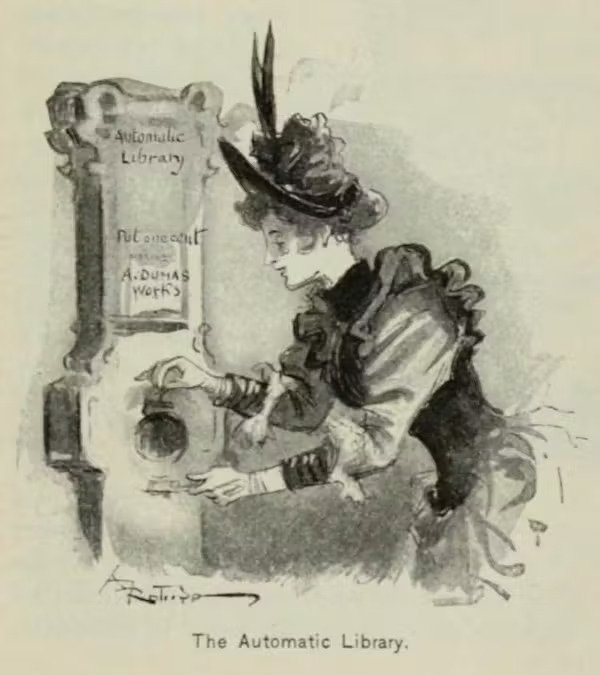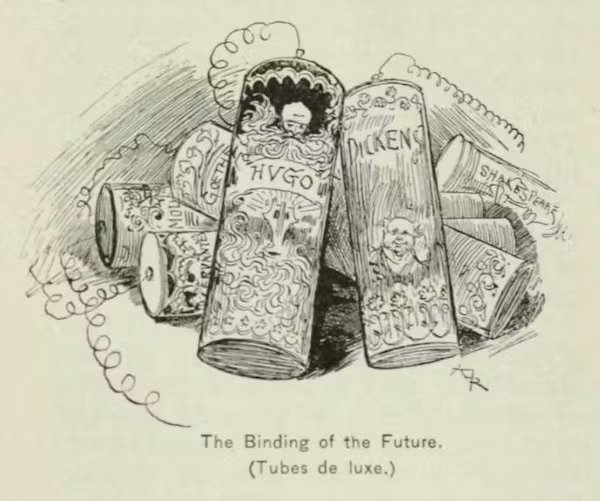Illustration by © Albert Robida, 1894 via Public Domain Review
"Come my worthy Bibliophile, it is your turn to speak. Tell us how it will be with letters, with literature and books a hundred years hence! Since we are remodelling the society of the future to suit ourselves this evening, each of us throwing a ray of light into the darkness of the centuries to come, I pray you illuminate certain horizons with a beam from your revolving light."
…If by books you are to be understood as referring to our innumerable collections of paper, printed, sewed, and bound in a cover announcing the title of the work, I own to you frankly that I do not believe (and the progress of electricity and modern mechanism forbids me to believe) that Gutenberg’s invention can do otherwise than sooner or later fall into desuetude as a means of current interpretation of our mental products.
…"As for the book, or let us rather say, for by that time books 'will have lived,' as for the novel, or the storyograph, the author will become his own publisher. To avoid imitations and counterfeits, he will be obliged, first of all, to go to the Patent-Office, there to deposit his voice, and register its lowest and highest notes, giving all the counter-hearings necessary for the recognition of any imitation of his deposit. The Government will realise great profits by these patents.
..."Having thus made himself right with the law, the author will talk his work, fixing it upon registering cylinders. He will himself put these patented cylinders on sale; they will be delivered in cases for the consumption of hearers."
"Libraries will be transformed into phonographotecks, or rather, phonostereoteks; they will contain the works of human genius on properly labelled cylinders, methodically arranged in little cases, rows upon rows, on shelves."
Notes on the text
Excerpts from "The End of Books" by Octave Uzanne. First published in Scribner's Magazine, Vol. 16 (July–December 1894). All artworks by French illustrator, etcher, lithographer, novelist, and futurologist Albert Robida.




